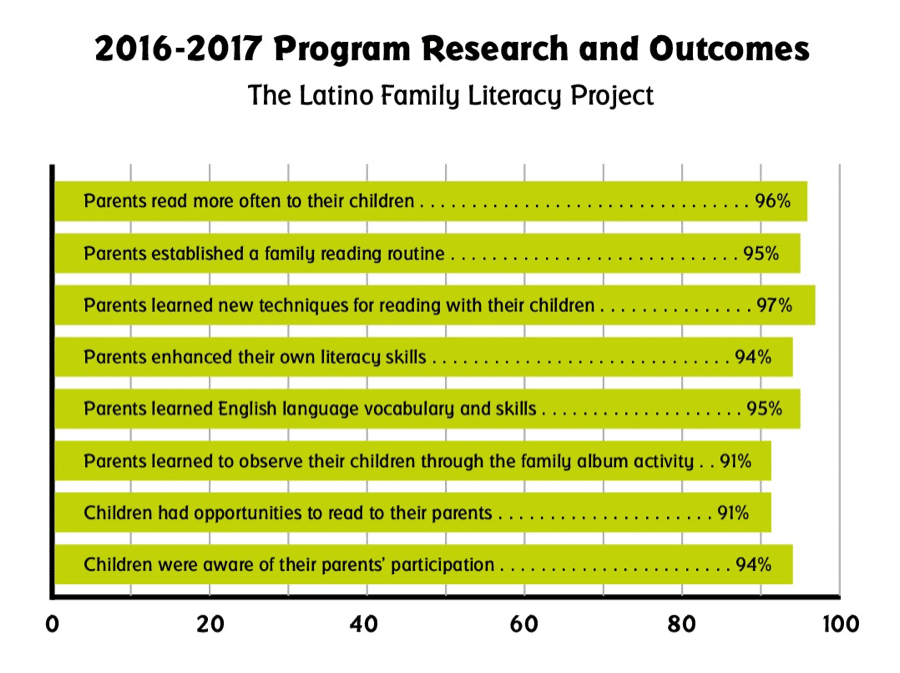
The Latino Family Literacy Project bases our programs on solid research conducted during the last forty years. And the research clearly shows that families, children, parents and society at large benefit from these literacy programs.
Research demonstrates that children whose families have gone through family reading programs attend school more regularly and that their knowledge in general, as well as their oral language development, reading ability, decoding skills, comprehension, math, writing, and science skills, all improve. According to this article children who come from poorer homes may benefit more from summer reading programs than kids from wealthier homes, according to a new study from the Massachusetts Institute of Technology.
There also are multiple benefits for parents. They are more likely to persist in family literacy programs than in the typical adult literacy offerings and becoming literate helps them improve their job status. Most importantly, the research also reveals a positive improvement in parents’ attitudes about education, plus their parenting skills improve due to family literacy programs. There are real benefits to be had from literacy programs for families as a whole. First off, families learn to value education, and they become more involved in their children’s schools. Secondly, the research shows that parent involvement leads to higher achievement for their children. Literacy programs help parents and children become emotionally closer and, significantly, everyone in the family starts to read more. Above all, family literacy programs are a win-win for society. Parental persistence in family literacy programs helps families break generational patterns of poverty and economic disadvantage.
We also know that it’s important to understand the family’s economic circumstances and how they affect student achievement. This is a well-documented area of research. Ruby K. Payne, for example, has focused on the disconnect that occurs when families who live in poverty come into contact with the middle-class expectations often held by educators. In addition, according to Payne, economic resources, or the lack of them, is only part of the picture. Payne notes that the academic success of a child depends on the support systems and on the emotional, mental, spiritual, and physical resources available in the home.
We often point to another research study that examines why we should care about family literacy. This report, which appeared in the Journal of Reading Education, supports the critical need for teacher education programs that include strategies and effective practices for involving parents in the education of their children. According to this article, two-thirds of teachers surveyed (Public Agenda, 2003) believed that their students would perform better in school if their parents were more involved in their child’s education
The key is that parents play a fundamental role in their children’s educational experience, and widespread research supports the need for parent involvement. We have made it our goal to review and integrate the relevant research on family literacy in our work, and we are constantly on the lookout for solid research that will continue to guide our efforts. I invite you to visit our website — www.latinoliteracy.com — where we have links to research sites that may be of interest to you. I hope to see you soon at a training workshop.
